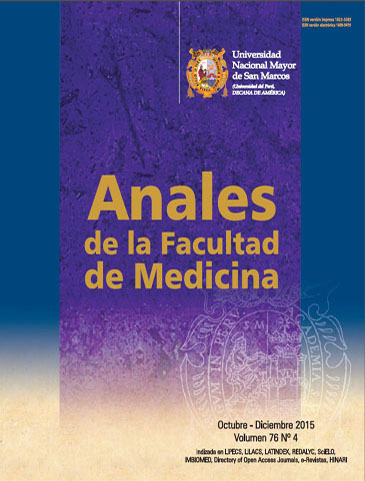Misunderstandings about the effect of legalizing abortion
DOI:
https://doi.org/10.15381/anales.v76i4.11413Keywords:
Abortion, induced, Legal Abortion, legislation and jurisprudence, Maternal Mortality, Abortion Rate.Abstract
Abortion laws are generally liberal in most of the developed countries and restrictive in developing countries, particularly in Latin America, with two exceptions. International health and human rights organizations promote broader access to safe abortion based on its effectiveness in immediate reduction of maternal morbidity and mortality. Laws remain restrictive in Latin America because of the erroneous concept that liberalization of the law would increase the number of induced abortions, something most people would not like. This is a crucial misunderstanding because evidence shows abortions are not less in countries with restrictive laws and number of abortions does not increase following liberalization of the law. It is also believed that most people are against liberalization of the law, but further inquiry reveals that most people are against punishing women who have abortions. The main misunderstanding is the belief that there are people “in favor of abortion”, while even women who abort do not like abortion. The real difference is that there are people who believe that keeping restrictive laws can prevent abortion and others accept evidence which shows that increasing access to safe abortion not only reduces suffering and deaths but contributes to reduce induced abortions.Downloads
Published
2015-12-31
Issue
Section
Simposio
License
Copyright (c) 2015 Anibal Faundes

This work is licensed under a Creative Commons Attribution-NonCommercial-ShareAlike 4.0 International License.
Those authors who have publications with this magazine accept the following terms:
- Authors will retain their copyrights and guarantee the journal the right of first publication of their work, which will be simultaneously subject to Creative Commons Attribution License that allows third parties to share the work as long as its author and its first publication this magazine are indicated.
- Authors may adopt other non-exclusive licensing agreements for the distribution of the version of the published work (eg, deposit it in an institutional electronic file or publish it in a monographic volume) provided that the initial publication in this magazine is indicated.
- Authors are allowed and recommended to disseminate their work over the Internet (eg: in institutional telematic archives or on their website) before and during the submission process, which It can produce interesting exchanges and increase quotes from the published work. (See El efecto del acceso abierto ).
How to Cite
1.
Faundes A. Misunderstandings about the effect of legalizing abortion. An Fac med [Internet]. 2015 Dec. 31 [cited 2025 Jun. 2];76(4):425-9. Available from: https://revistasinvestigacion.unmsm.edu.pe/index.php/anales/article/view/11413



